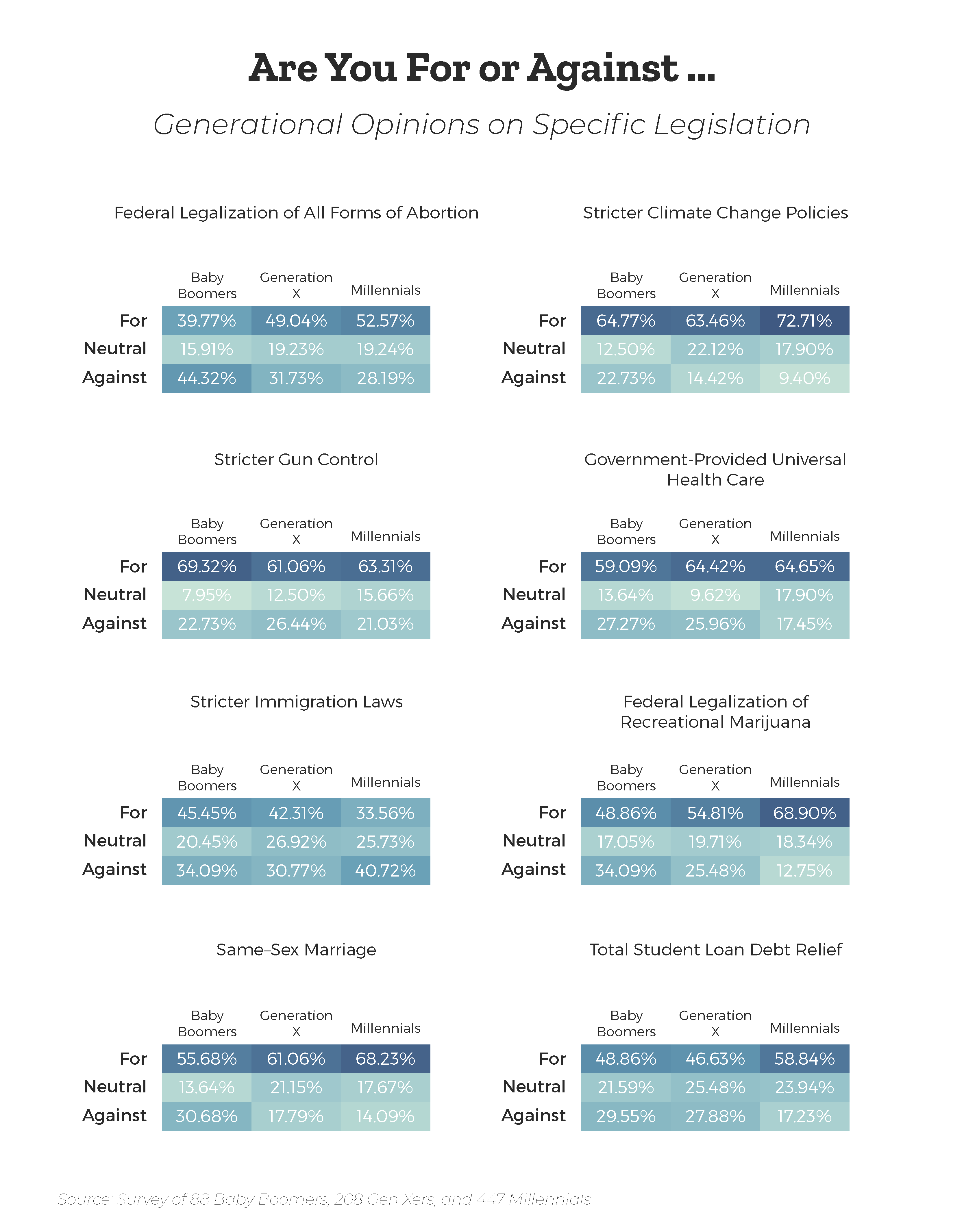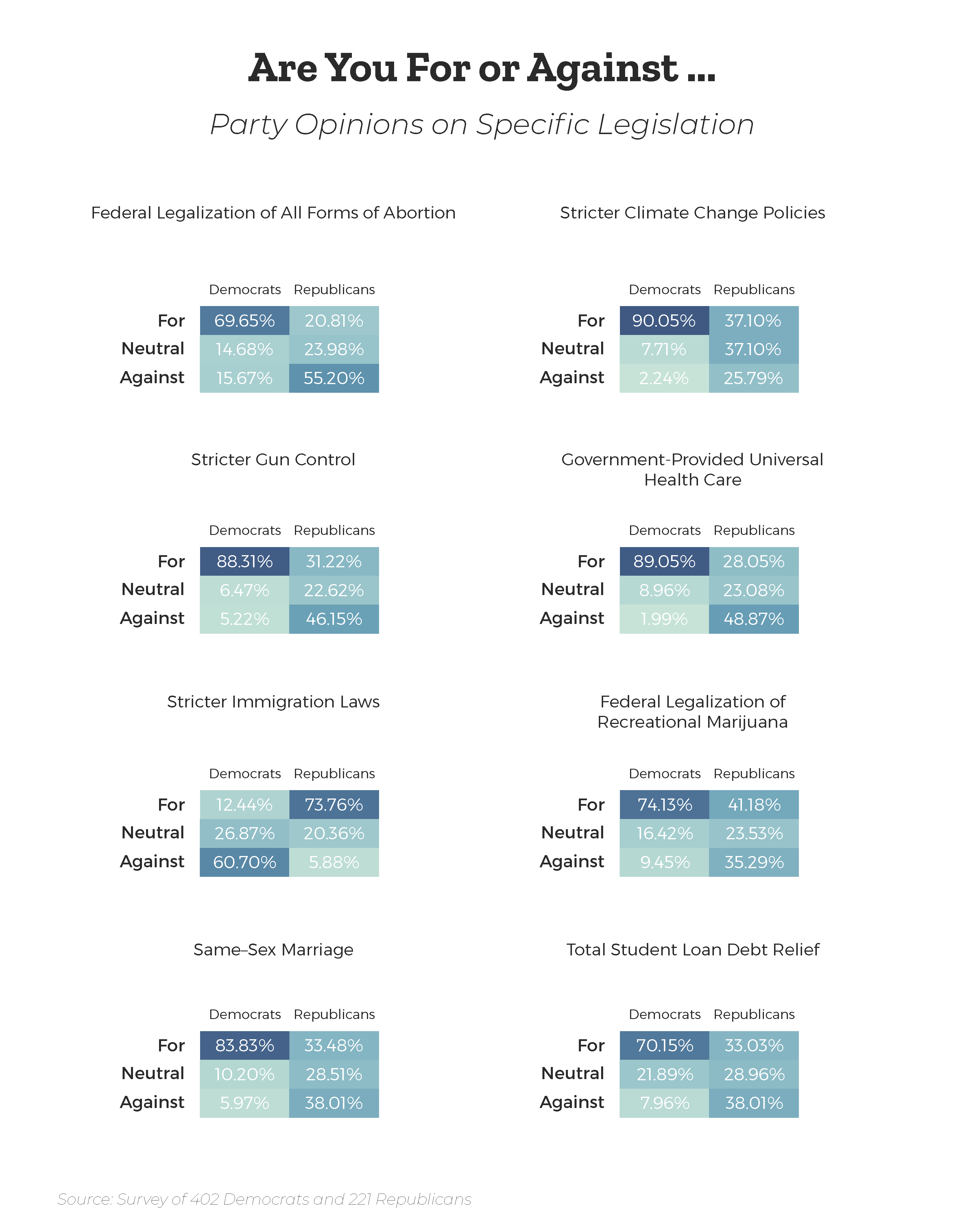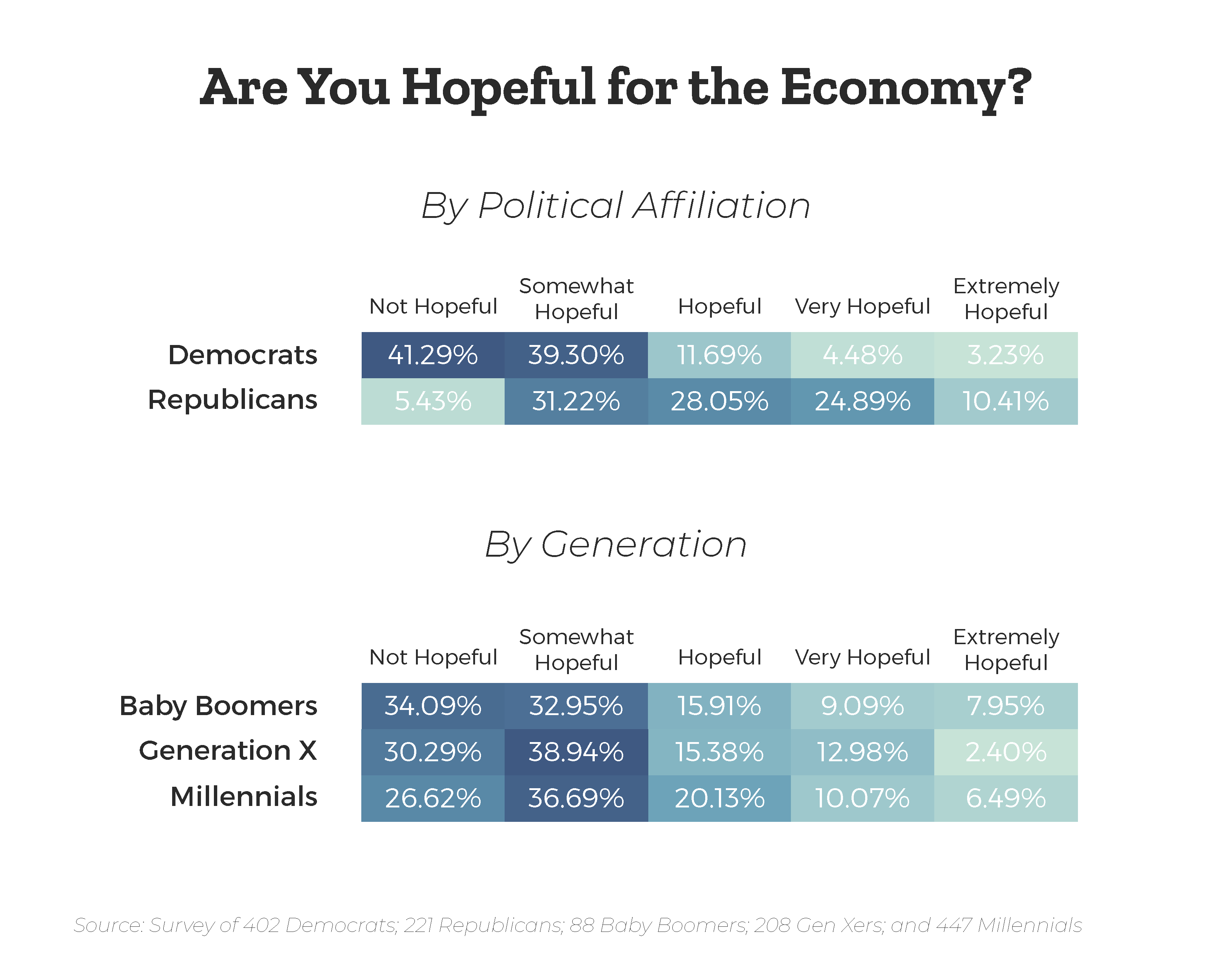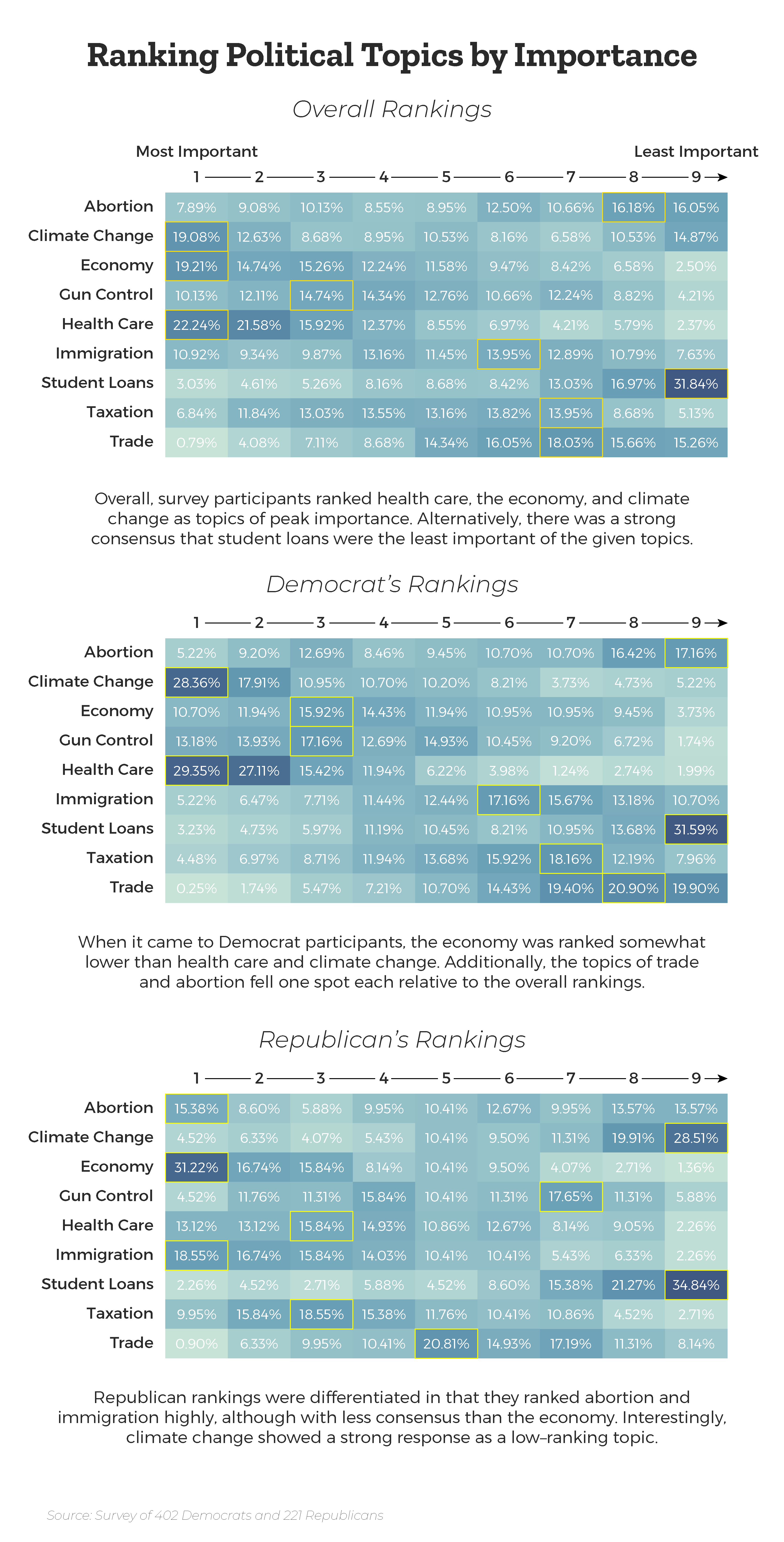In the 21st century, Americans have become more polarized than ever, as citizens are pulled to the fringes of political parties. And this deviation from centrist ideals can turn away voters who may gravitate toward more moderate positions.
Regardless of where we lie on the political spectrum, though, many of us are concerned about the same social and fiscal topics. We simply vary on how we think the problems could be solved.
Among Republicans and Democrats, where are the lines in the proverbial sand drawn now? How torn are voters on certain issues? And is it possible to find common ground on the most pressing political topics? We conducted a survey that aimed to understand more about the discourse surrounding some of the most important issues facing us today. Continue reading to see our full results.
How Does Age Impact Our Political Opinions?
The generation that someone belongs to can greatly affect his or her choices, preferences, and opinions. Not only are different age groups impacted by varying significant events that may influence political ideologies (such as 9/11 or Pearl Harbor), but the common experiences of being 20, 40, or even 60 years old can result in priorities based on those specific ages.
Generally speaking, millennials were more likely to take progressive stances on issues than the other age groups.

However, the most popular stance overall was supporting stricter laws to tackle climate change, garnering support from a large number of baby boomers (65%), Gen Xers (63%), and millennials (73%). As we continue to hear pleas from researchers and high-profile activists calling on elected officials to address the issue, the American people seem to mirror the scientific community’s calls to action.
Immigration was an issue where all generations were unable to come to a consensus. From an open border to a border wall, a multitude of solutions have been suggested to address the faults in American immigration policy.
Down Party Lines, Popular Stances Arise
Taking the same questions and looking at them from the perspective of political affiliation, we can see very clear delineations in voters’ stances, especially regarding health care, gun control, immigration, and abortion.

The two major political parties may seem to point voters in specific directions, but we observed one clear difference: Democrats were more likely than Republicans to be decidedly in favor or against a particular stance. The only exception was that over 73% of Republican respondents supported stricter immigration laws.
Interestingly, when it came to climate change, Democrats were the most unified in support, whereas Republicans were about equally likely to be for or against stricter climate change policies. This trend was also seen with recreational marijuana, same-sex marriage, and student loans. The Trump administration has inspired a clear division in the Republican Party, likely impacting the diverse range of Republican responses in our survey.
Who Sees a Promising Future or a Bleak Forecast?
When it came to the economy, in particular, Democrats were much less hopeful for the future. But Republicans, while more optimistic, were still not entirely convinced that the economy of tomorrow would be positive.

Overwhelmingly, respondents weren’t very hopeful when thinking about the future of the American economy. Over 41% of Democrats reported feeling not hopeful when they considered the economy, and only 1 in 10 self-identifying Republicans reported being extremely hopeful. Forecasts vary, but the future of the global economy is subject to change and is influenced by many factors that relate to domestic and international policy.
How Relevant Are the Issues to Voters?
When looking at overall rankings, people felt most strongly that student loans were the least important topic. On the other hand, there was some consensus around the significance of climate change, the economy, and health care.

Even with mass media coverage on the 2020 Democratic candidates’ plans to handle the crisis, student loans were an issue that nearly 1 in 3 respondents considered the least important topic on our list.
One major contrast occurred when comparing the importance of climate change. Over 28% of Democrats ranked climate change as their No. 1 issue, while nearly the exact same percentage of Republicans ranked the topic last on their list. The partition between this issue is only getting stronger, but a recent influx of conservative voices engaging in the conversation about climate change shows hope for compromise.
Republicans, on the other hand, showed a very clear preference for the economy while leaving climate change and student loans toward the bottom of the list. This indicates a preference for social issues among Democratic voters and an affinity for economics by Republicans.
Regardless of political allegiance, many voters are single-issue voters or people who affiliate with a political group due to a single platform stance. These voters may support little government intervention but are in favor of stricter abortion regulation, or they may be progressive when it comes to taxes but don’t support marijuana legalization.
Varying Opinions About Politics
Most people’s political affiliations are influenced by their families. But as someone ages, becomes educated, and begins to think critically about the issues, their opinions may change.
Political ideologies can be very nuanced, and voters don’t fall into blanket categories; in fact, this speaks to the diversity of opinions within political parties, showing that even among Republicans and Democrats, they might not necessarily vote along party lines.
Fair Use Statement
Share this research with your friends, family, and loved ones across all generations and political affiliations. Make sure you mention us when citing our data, though, and only share these findings for noncommercial use.
